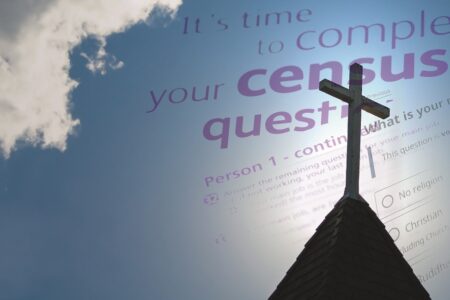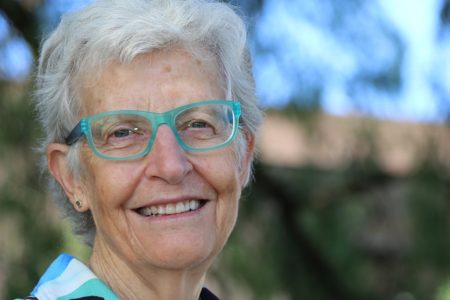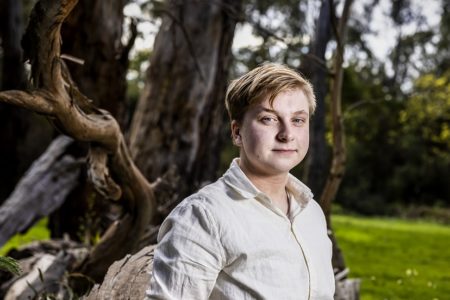By Andrew Humphries
Do a quick Google search for quotes relating to the power of music, and quite a few come to hand.
“Music is life itself”, says one, while others suggest that “music is the soundtrack to your life” and that “music is love in search of a word”.
But perhaps its meaning is best summed up by Lebanese-American writer, poet and visual artist Kahlil Gibran.
“Music is the language of the spirit. It opens the secret of life bringing peace, abolishing strife,” wrote Kahlil, famous for his 1923 book The Prophet.
Every Sunday, COVID-19 restrictions allowing, Uniting Church members gather to celebrate and praise the word of God and, in most congregations, music plays an integral part in affirming that commitment.
It’s music that is very much the language of the spirit, bringing peace and abolishing strife.
The Apostle Paul also wrote of music as the language of the spirit and opening of the heart.
In Ephesians 5:19, Paul implores believers to “live as children of the light and find out what pleases the Lord”.
“Be filled with the spirit,” he says, “addressing one another in psalms and hymns and spiritual songs, singing and making melody to the Lord with your heart.”
So, nearly 2000 years after Paul wrote his Letter to the Ephesians from prison in Rome, what is music’s role in faith and worship today?
North Ringwood UC member and one of its music program co-ordinators, Larissa McLean Davies, offers a moving example of how inspiring, and inclusive, music can be.
One congregation member has cerebral palsy and is also blind, but his love of music and the role it plays in his own faith and worship never fails to inspire Larissa, who says it’s the perfect example of the inclusive power of music.
“He plays in one of our bands and has an awesome sense of rhythm and love of music and it’s an enormous blessing having him in the band,” Larissa says.
“It shows there is a real sense of ministry we can have through music that gives us a blessing if we are prepared to open up to it.
“When one of the lockdown rules was eased slightly, he was able to come and record himself playing for one of our services and you can see this connection he has with God through music.
“That, for me, in recent times has been a very powerful event and a real reminder of music and faith, and we are incredibly fortunate to have his witness at North Ringwood church.”
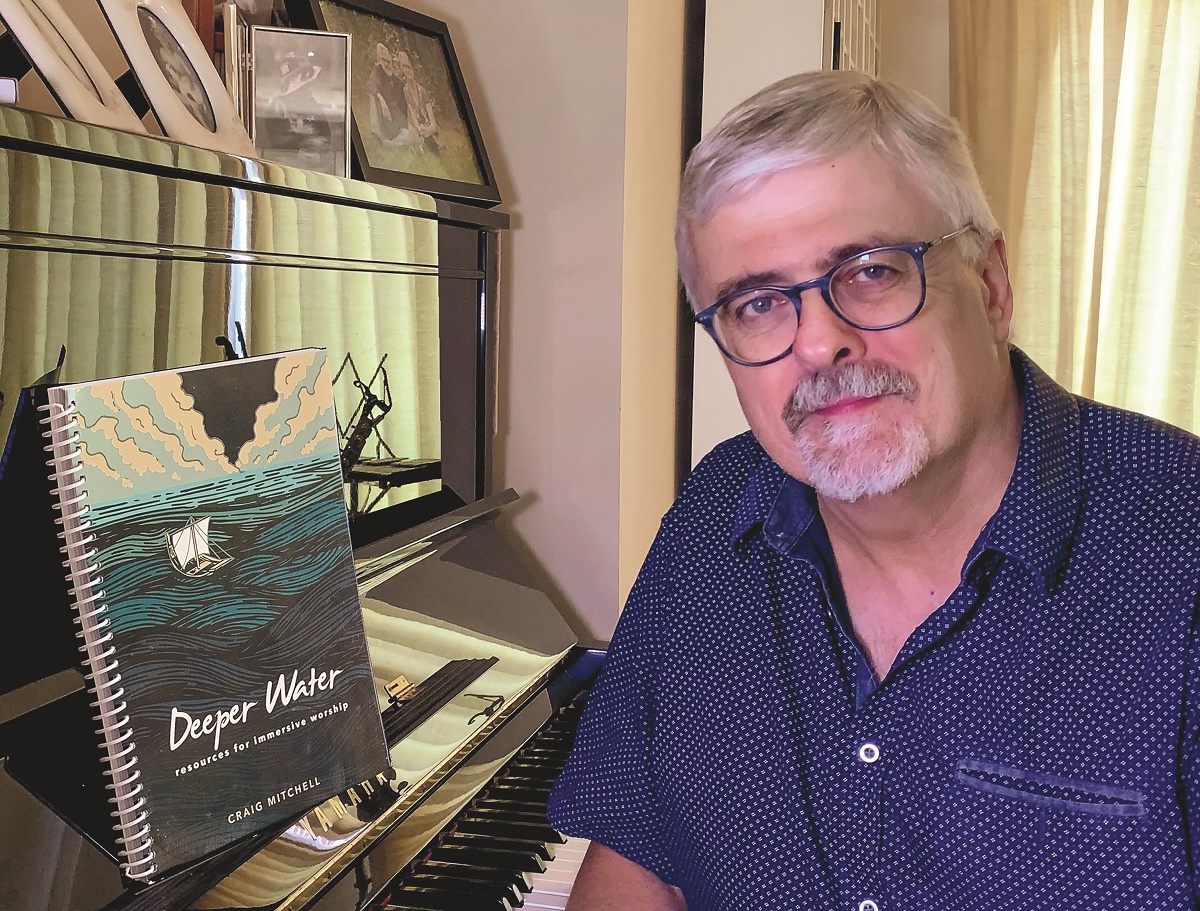
Minister Craig Mitchell loves the places that music and lyrics are often able to take us.
Port Phillip East Presbytery Minister Craig Mitchell knows only too well the gift that music provides in enhancing faith and worship.
Music and lyrics have been a constant companion during many years of worship.
Songwriter Craig is passionate about sharing his love of music and words with UC congregations and he is heavily involved in organising the annual Songwrite event, to be hosted by Murrumbeena UC next month.
When Craig thinks of the link between music, faith and worship, it’s the act of participation that music encourages that most strikes him and about how, when done well, it has the power to lift people in a spiritual and emotional sense.
“One of the key things around music and worship is participation, because music during a service is one of the times in worship where everybody gets to do something and the whole place is enlivened,” he says.
“Yes, we say things together in worship, and we have communion, but music and worship is all about participation and that sense of participation in the playing and leading of it is something enlivening.”
Special guest at next month’s Songwrite event will be New Zealand-based ordained Minister Malcolm Gordon, a talented singer-songwriter who has released a number of albums and believes firmly in the power of music to move people in so many ways.
“I tend to write two types of music,” Malcolm, minister at the Presbyterian Church of Aotearoa, says.
“The first is music that is primarily for me, as I try to work life out, and these songs are the closest thing to a diary for me, not that they’re particularly revealing.
“These songs are stories that capture my imagination and things I want to remember, so I turn them into a melody. The second is music I write for the church to sing, or to listen to.”
For Malcolm, and indeed Craig, it’s the joy of creating a connection with people through words that makes the craft of songwriting worthwhile.
“The challenge is to offer a melody that people can sing, that they want to sing, and that they sound good singing,” Malcolm says.
“Lyrically, you want to ensure the people are being given words that connect their faith with the ancient streams of Christian faith, and yet are thoroughly at home on their lips, using their language, their imagery to make the word dwell in their neighbourhood.”
Craig says there is nothing better than being able to get a message across through the power of words.
“In music, the words matter in that we learn what we believe by singing them,” he says.
“It’s actually why writing lyrics is sometimes hard, making sure they are not cheesy or trite, nor repetitive.
“Sometimes it’s about what they don’t say as much as what they do say, but there are some songs that are more emotive, and that is fine because we should be able to sing our hearts out to God.”
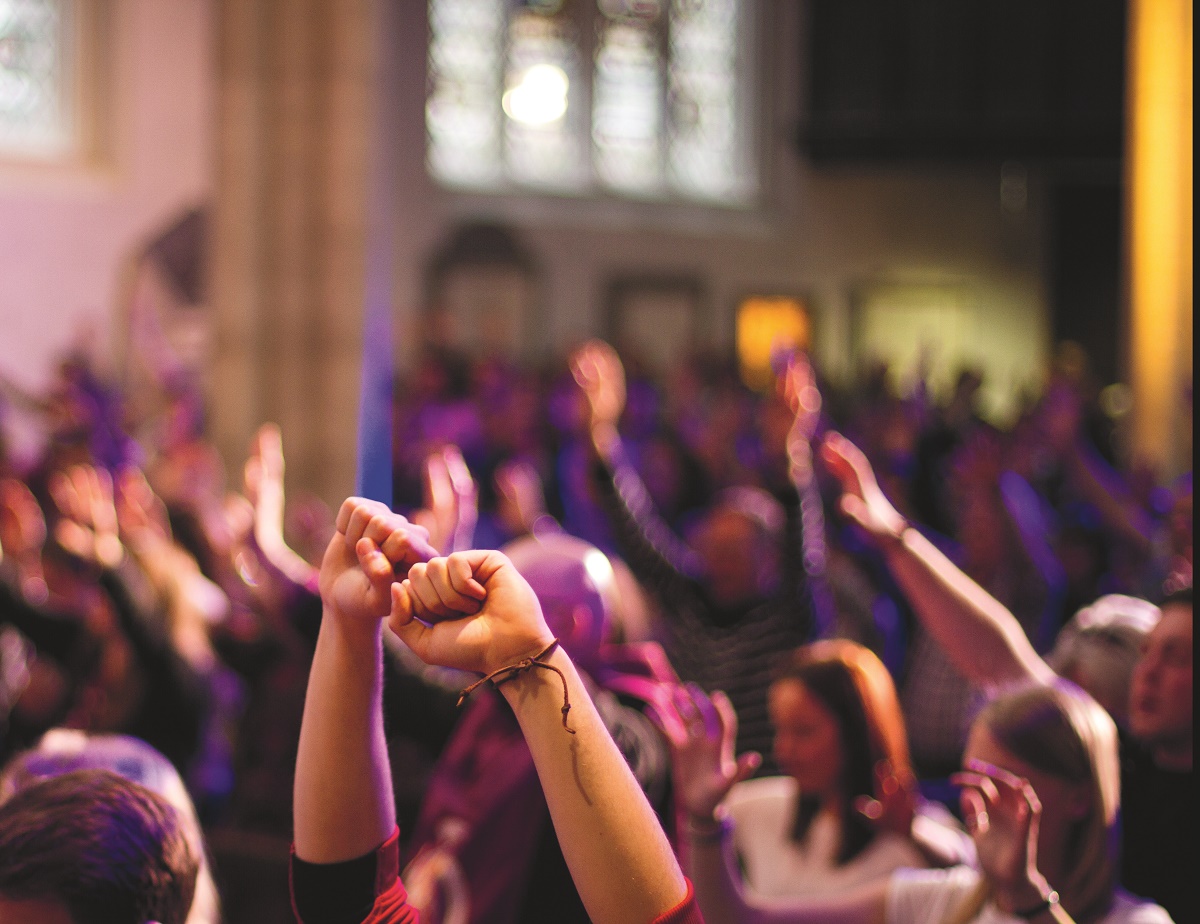
New Zealand Minister Malcolm Gordon loves the way music has the ability engage people everywhere.
And a good song, Malcolm says, is one that resonates with people long after they have left a worship service.
“I teach worship at a number of Bible colleges and seminaries in NZ and when I get intern ministers in a room, I like to tell them that no matter how much time they are spending on their sermons, the people are still going to go out humming the last song, rather than remembering their three-point message,” he says.
“Music is so powerful because it integrates the intellect with the emotion, as well as the physical. It’s an act of physical exertion, we breathe differently, we stand, we might even clap.
“Singing is one of the few ways we can love God with our ‘heart, mind and strength’.”
And it’s often in times of grief or great stress, of torment and uncertainty, that music rises to the occasion, never more evident than in the 18 months since COVID-19 arrived on our shores.
Its arrival has meant a severing of connections in a physical sense as congregations were forced to retreat to online worship.
What was vitally important, though, was that music continued to play a part in that new form of worship, even if congregation members couldn’t fully physically embrace it as they once did.
Larissa is proud to say that North Ringwood was one of the congregations that stepped up as services headed online.
With a family of talented musicians on call, Larissa had all that was needed to ensure that music continued to play a big part in faith and worship.
“When restrictions began, I decided that it would keep us all going if we produced music for all of the online services,” she recalls.
“Our two sons are musicians so we were able to do a lot of recording at home and we were able to involve a lot of the congregation by laying down tracks with vocals, assembling them and sending them out as recordings.
“There were a lot of family groups doing that as well and North Ringwood congregation members produced about 45 recordings, and a huge amount of effort went into engineering all of that, but it was good because it kept everyone involved.
“I think the congregation appreciated it, because for some people music is the main reason for their involvement.
“I feel it gave people a sense of being able to contribute to the church community online and it gave them a sense that they could use their gifts and talents when other avenues were being closed down, so it was a way of contributing to something productive.
“Music is one of God’s greatest gifts, so if we can use that for worship then that is what we should be doing.”

Whether in a physical setting, or online, music forms an important part of the church service.
And as a gift from God, music forms an important part of every service at the Korean Church of Melbourne’s Cornerstone congregation, whether physical services or ones streamed online during lockdowns.
Pastor Sam Joo and worship director Brian Kim spend a great deal of time ensuring the music for each service ties in with that week’s theme.
“We will generally have three songs of praise at the beginning of the service and a song of offering at the end,” Sam says.
And while it sometimes varies, guitars, keyboards and a cajon drum provide the beat for uplifting songs of praise and worship.
Plenty of preparation is also important when it comes to choosing music for each service.
“When I set out my sermon schedule for a two-month period, Brian will go through each scripture passage and a summary I give him so he can match songs to scripture,” Sam says.
“It’s well prepared in advance so it aligns with how worship is done.
“So the uniformity of message is there, but in worship itself, the music invites congregation members to open up their hearts and be ready to receive the message of God.
“Our members really enjoy and appreciate it and really get into the spirit of the music.
“I find music allows them to get into a space where they can all share the experience of being part of the church.”
More than anything, though, the music chosen must fulfil one main criteria.
“What is performed must praise the God that we worship,” Sam says.
“So we are very aware of the lyrics and theology behind it and we are very careful about what we choose.”
In Caulfield North, the Caulfield Indonesian UC’s weekly service is also enriched greatly through the gift of music.
When COVID-19 restrictions allow, the congregation meets three times a month to worship at a service in which Indonesian is the main language, while once a month an English-speaking service is held.
Rev Lingky Widodo says the use of music adds a rich layer of meaning to each service.
While the performers may change regularly, it is traditional hymns which come to the fore, the perfect expression, says Lingky, of the role of music in their faith and worship.
“In the traditional Indonesian service, we use hymns mostly, but occasionally new songs are performed,” he says.
And while new songs are mainly played at the monthly English-speaking service, which is aimed more towards a younger generation, Lingky says even in that setting there is still a role for the traditional hymn.
“We do encourage that younger generation to also embrace the music of hymns,” he says.

Music is life for so many people of faith.
Lingky says the role of music and songs in service, and the act of worship itself, should never be underestimated.
“The songs are so important, they really shift our focus towards what we have gathered to do at a service, to celebrate together as people of God,” he says.
“So in that sense, the songs play a very important role.
“On a personal level, I love the act of singing hymns because those who have listened to the sermon can then reflect on how the particular hymn might tie in with it.
“Hymns play a hugely important part in imparting the message of God in our services.”
And it is the ability of music to bring us closer to God that so resonates with Larissa.
“I feel closest to God through music and I feel it’s an important part of faith and I believe people can come to faith through music and it can be a great nourishment and comfort in times of difficulty,” she says.
“For me, it’s a really important form of expression and that is why I have always been keen on seeing people involved.
“It just wouldn’t occur to me to not have music as a part of worship.”
Craig, too, can’t imagine the act of worship without music because, in so many ways, it has been such a fundamental part of his life within the church.
“I come at music and worship as a church member and worshipper, as a musician and as a worship leader,” he says.
“I wear those three hats and have grown up in the church with music in just about every style from organ hymns to bands.
“The church has an incredibly rich and broad music history and, in every church I have been in, I have been playing music, so part of my own faith and discipleship is being part of the music, and the churches that we have joined and stayed in have been ones where people are encouraged to be part of the music.
“We like music because it’s affective, it stirs us, and we sing our hearts out in a sense and we don’t just sing about God, we sing to God.
“Music is often where the congregation finds its voice in a way that is heartfelt and contains the full range of emotions, from thanks to lament to confession to commitment.
“We’re singing about our world and I think it unifies us in worship as we find a common voice.”
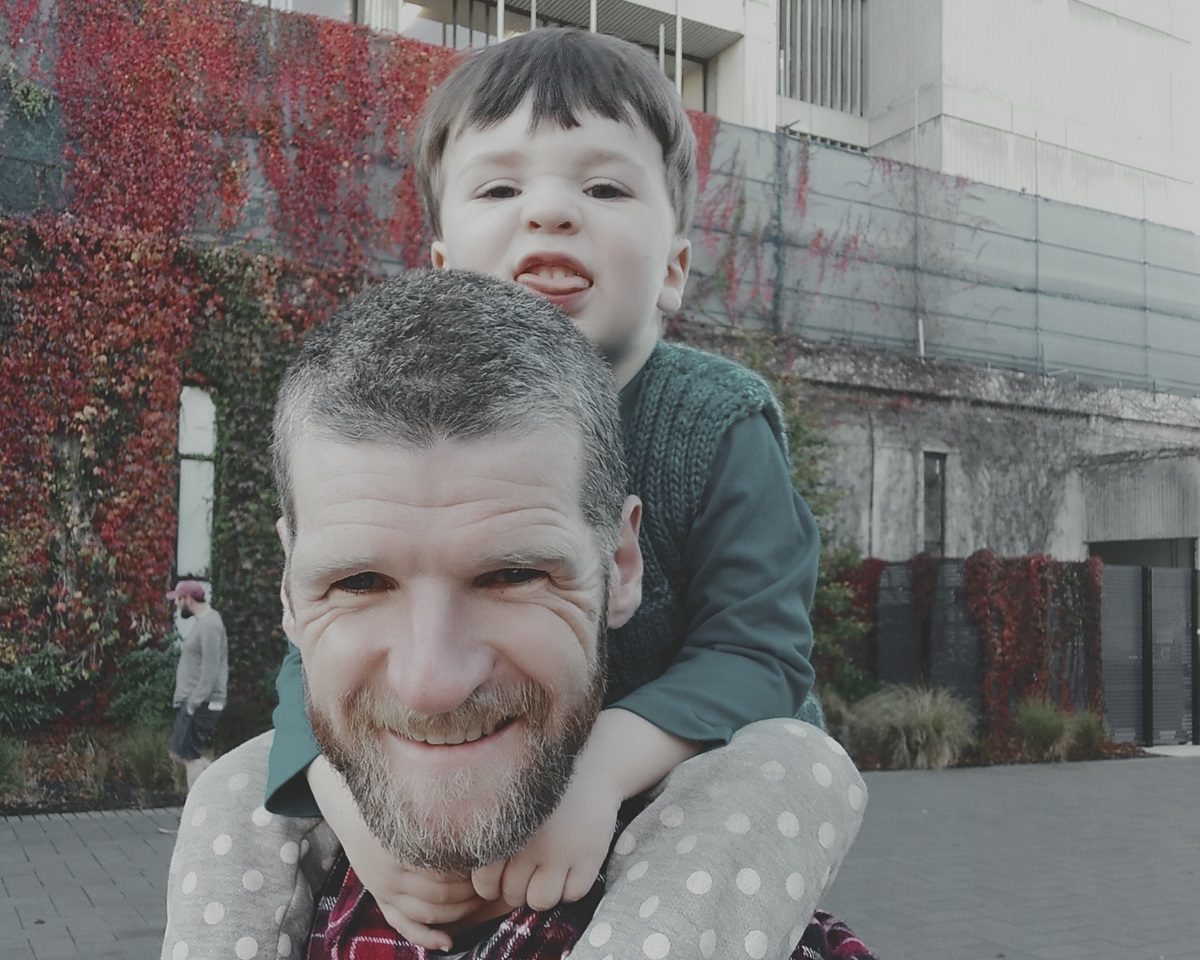
Malcolm Gordon, pictured with his son Robbie, will be the special guest at next month’s online Songwrite event.
Meanwhile, Craig Mitchell’s already busy schedule has become even more hectic as he puts together a special music event happening in November.
From November 5-6, the UCA’s annual Songwrite – Creating New Songs for Worship event will bring emerging and experienced songwriters together to create new songs for contemporary worship.
Songwrite is held around the country and Murrumbeena UC has the honour of hosting the Melbourne event.
It’s an event, says Craig, which invites songwriters to “make space for creativity, connection, contemplation and community”.
“Songwrite is a Uniting Church gathering for crafting new songs for contemporary worship,” he says.
“It is open to aspiring songwriters, beginners, and those who have already been making music for worship.
“Whether you write words or music or both, Songwrite is a space for working on new songs (and) there’s no expectation.
“The event offers the gift of space and encouragement and at its heart is a weekend community who listen to God’s creative spirit, learn from one another, and support each other in writing new music.”
Special guest is New Zealand singer-songwriter Malcolm Gordon, whose songs have been sung in New Zealand, Australia and overseas.
The Presbyterian Church of Aotearoa Minister is completing a PhD in music and worship and has recorded a number of albums.
Craig says one of the features of the national event will be the ability for songwriters from around the country to connect with each other online.
“One of the great things about Songwrite is that you get people who have written a lot of songs and people who have never written a song together in the same place for a weekend,” he says.
“Because everyone is having a go at it, no one is in charge in a sense, so you can go to someone with some words and say, ‘what do you think of this?’, so you are getting feedback.
“We’ll get Malcolm to talk about music and worship and to teach us a song and tell us where it came from.
“So we’ll have our event here and there will be parallel events around the country and we will livestream Malcolm to those places and then get someone from, say, Brisbane or Darwin to teach us one of their songs and tell us how they wrote it.
“This way we are connecting people right around the country.”
For more information about Songwrite, click here


